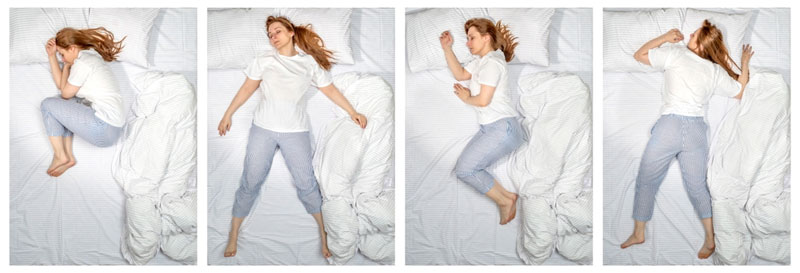Many paths are explored in the quest for a good night’s sleep, from lifestyle adjustments and home remedies to medical interventions. However, amidst these varied solutions, one simple yet often overlooked avenue is the role of vitamins in improving sleep quality. Understanding what vitamin is good for sleep can unlock the door to restful nights, especially when integrated with holistic practices to enhance sleep. This exploration becomes even more pertinent for specific groups, such as men with ADHD, who often face unique sleep challenges. Let’s dive into the vitamin essentials for sleep and how they intertwine with these holistic practices.
Optimal Vitamins For Enhancing Sleep Quality
Emerging research highlights the significant roles of vitamins C, D, and B complex in promoting healthy sleep patterns, with vitamins E, A, and K contributing somewhat to a lesser extent.
Vitamin D: The Sleep-Wake Cycle Regulator
Vitamin D is crucial for bone health and plays a vital role in brain function, including regulating the sleep-wake cycle. The majority of vitamin D in the human body is produced through sunlight exposure on the skin, supplemented by dietary sources and vitamin intake. Its influence extends to regulating melatonin production, the hormone pivotal for sleep, and possibly affecting other genes and substances that control the sleep-wake cycle.
Vitamin B
The B vitamins, specifically B3, B6, B9, and B12, directly and indirectly impact sleep hormones. Deficiencies in B1 or B2 can lead to fatigue, sleep disturbances, and other symptoms. Vitamin B12 is integral to melatonin synthesis, affecting sleep length, ease of falling asleep, and daytime alertness. Vitamin B6, meanwhile, could aid individuals with insomnia and improve sleep quality, potentially easing restless legs syndrome symptoms characterized by an overwhelming need to move the legs.
Vitamin C: Antioxidant for Oxidative Stress Reduction
Vitamin C is an antioxidant that is crucial in neutralizing oxidative stress. This stress can both cause and result from poor sleep. By managing oxidative stress levels, vitamin C indirectly supports healthy sleep patterns. High oxidative stress levels have been associated with sleep disorders such as obstructive sleep apnea and restless legs syndrome, which are marked by breathing interruptions.
Vitamin E: Antioxidant with Potential Sleep Benefits
Recent findings suggest a connection between vitamin E deficiency and shortened sleep, although the effectiveness of supplements in extending sleep duration remains unclear. Vitamin E’s “antioxidant properties may enhance sleep quality and alleviate menopausal night sweats, disrupting sleep. Furthermore, vitamin C and E supplements have shown promise in relieving symptoms of restless legs syndrome and obstructive sleeve apnea.
Vitamin A: Light Detection and Sleep Regulation
Vitamin A aids in the eye’s light detection, potentially influencing the sleep-wake cycle, including sleep timing, duration, and quality. Lower consumption of vitamin A and its compounds may correlate with reduced sleep. While supplements can restore vitamin A to healthy levels, caution is advised as high doses can be detrimental.
Vitamin K: Sleep Duration and Quality
Insufficient vitamin K levels have been associated with shorter sleep and diminished sleep quality. Additionally, low vitamin K levels may occur alongside depression and oxidative stress, further impacting sleep.
Medella Springs Sleep Supplement For You
Noctoplex, a comprehensive sleep aid formula, harnesses the power of essential vitamins like vitamin C and natural extracts to promote restful sleep. With key ingredients like vitamins B6 and B12, it aids in producing serotonin and melatonin, essential hormones for regulating sleep cycles. Magnesium, another vital component, reduces muscle tension and calms the nervous system, facilitating an easier transition into sleep. Together, these ingredients synergize to help users fall asleep more easily and experience quality rest, addressing physical and psychological aspects of sleep disturbances.
Complementary Holistic Practices For Enhanced Sleep
Integrating holistic practices can offer a comprehensive approach to improving sleep.
Meditation For Sleep

Meditation has long been recognized for its calming effects on the mind, making it an effective tool for combating insomnia and enhancing sleep quality. Meditation can offer a tranquil retreat from hyperactivity and restlessness, facilitating a smoother transition to sleep. Regular meditation for sleep can help quiet the mind and prepare the body for rest.
Sleeping On The Floor

Though it may sound unconventional, some have touted sleeping on the floor as beneficial for back health and improving sleep quality. The theory suggests that the firm surface can help maintain optimal posture and spinal alignment during sleep. Individuals exploring this option should consider their comfort and potential impact on sleep quality, as preferences and benefits can vary widely.
Red Light for Sleep

The influence of light on sleep is profound, with blue light from screens known to disrupt sleep patterns. Conversely, red light therapy has emerged as a sleep aid, with studies suggesting its potential to promote relaxation and improve sleep. The use of red light in the evening can support the natural circadian rhythm, making it easier to fall and stay asleep.
Sleeping Direction

The concept of sleeping direction, rooted in traditional practices like Vastu Shastra and Feng Shui, posits that aligning one’s sleeping position with magnetic fields can influence sleep quality. While scientific evidence is limited, the idea promotes harmony and energy balance, which could contribute to a more restful sleep environment.
Conclusion
Integrating specific vitamins and minerals into your diet can play an important role in enhancing your sleep quality. You can create a powerful regimen for improving sleep when combined with holistic sleep practices, such as meditation, red light therapy, and optimizing your sleep environment. Remember, it’s essential to visit a doctor before beginning any new supplementation, especially for individuals with specific conditions like ADHD, to ensure a tailored approach that addresses unique health needs and sleep challenges.
